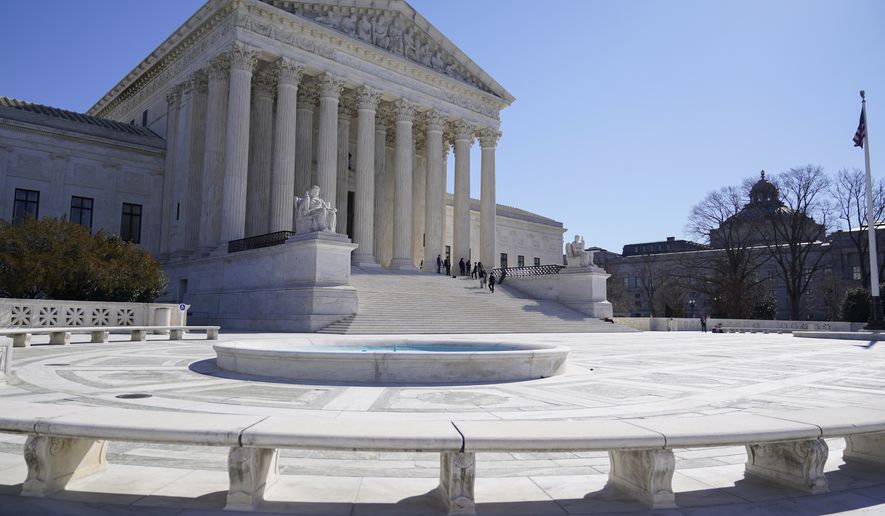A Texas man facing execution can request to have his pastor pray aloud and be touching him as the state carries out a lethal injection, the Supreme Court ruled Thursday.
The justices, in an 8-1 decision, said Texas was being too strict in limiting John Ramirez’s interaction with his pastor during his final moments, violating a federal law protecting the religious interests of prisoners.
Texas had argued that audible prayer and laying of hands could interfere with the execution itself — a solemn duty the state said it takes pains to carry out correctly. But the court said Texas’s worries are too general, and the state must strive to accommodate Ramirez’s religious requests as best it can.
“Because it is possible to accommodate Ramirez’s sincere religious beliefs without delaying or impeding his execution, we conclude that the balance of equities and the public interest favor his requested relief,” wrote Chief Justice John G. Roberts. Jr.
Justice Clarence Thomas dissented, calling Ramirez’s request “insincere.” He pointed to the inmate’s history of seeking delays, and said the high court shouldn’t be encouraging those kinds of requests.
Ramirez isn’t challenging his conviction or his sentence, just the conditions of carrying it out.
The high court’s decision amounts to a preliminary injunction. It doesn’t end the case, but it does mean that if Texas tries to carry out the execution without accommodating Ramirez, it will have to go back to a federal judge and prove why it cannot meet his requests.
“The Supreme Court clarified that the rule of law is as ubiquitous as God. Both exist everywhere and always — high up in the hallowed halls of power and down low in the hell of the execution chamber,” said Seth Kretzer, the lawyer who argued for Ramirez before the Supreme Court.
Ramirez was convicted of stabbing a convenience store clerk 29 times during a robbery in Corpus Christi, Texas, in 2004. Ramirez, seeking money for drugs, made off with just $1.25. The clerk died in the store parking lot, leaving nine children and 14 grandchildren behind.
Ramirez and his accomplices attempted two other robberies that night, including one where Ramirez held the now blood-stained knife to the throat of a woman sitting in the drive-thru at a Whataburger restaurant as her 2-year-old son looked on from the back seat of the car, Justice Thomas wrote.
Ramirez was first scheduled for execution in 2017, but appeals and other proceedings have delayed it. Texas, meanwhile, has been trying to figure out its execution protocols and religious requests.
In 2019, it tried to bar a Buddhist spiritual advisor from accompanying a condemned man, saying it already had Christian and Muslim chaplains available. The Supreme Court ruled the state was discriminating against Buddhists.
Texas then barred all chaplains.
Ramirez, facing a Sept. 8, 2021, execution date demanded his Christian pastor be present. Texas first refused, then agreed — but Ramirez then said he wanted his pastor not just present, but to “lay hands” on him and “pray over” him.
• Stephen Dinan can be reached at sdinan@washingtontimes.com.




Please read our comment policy before commenting.